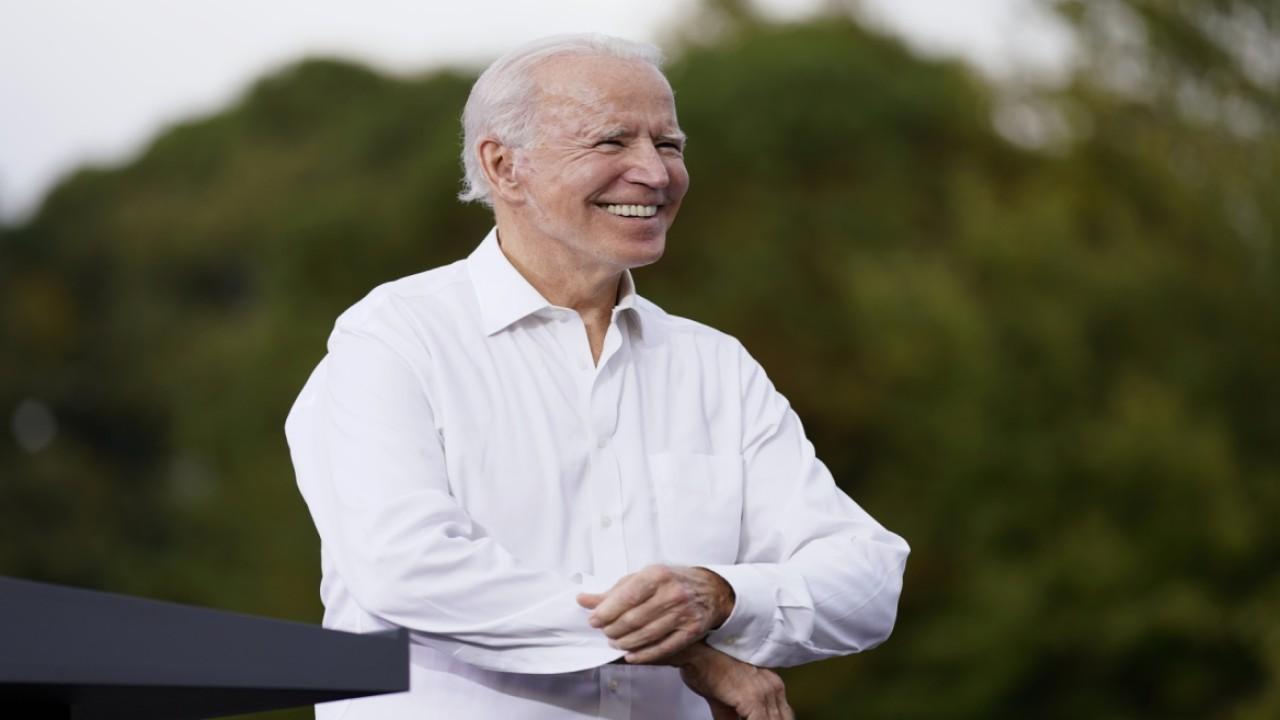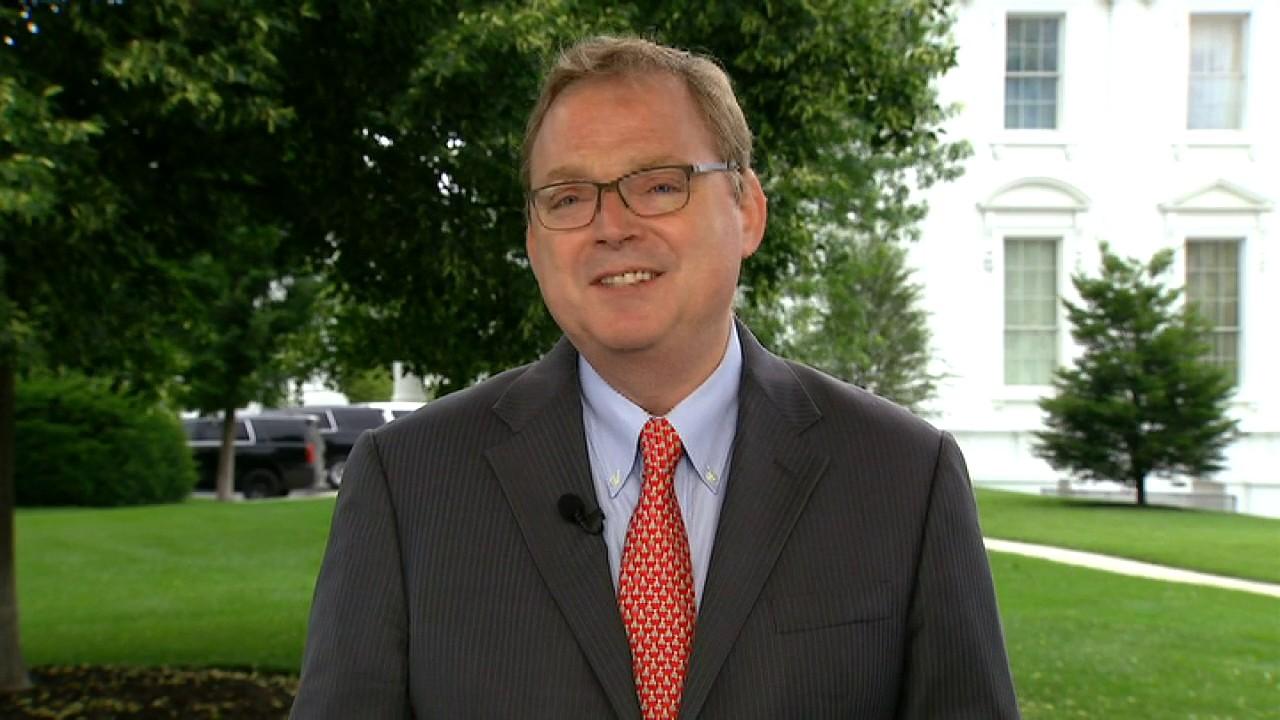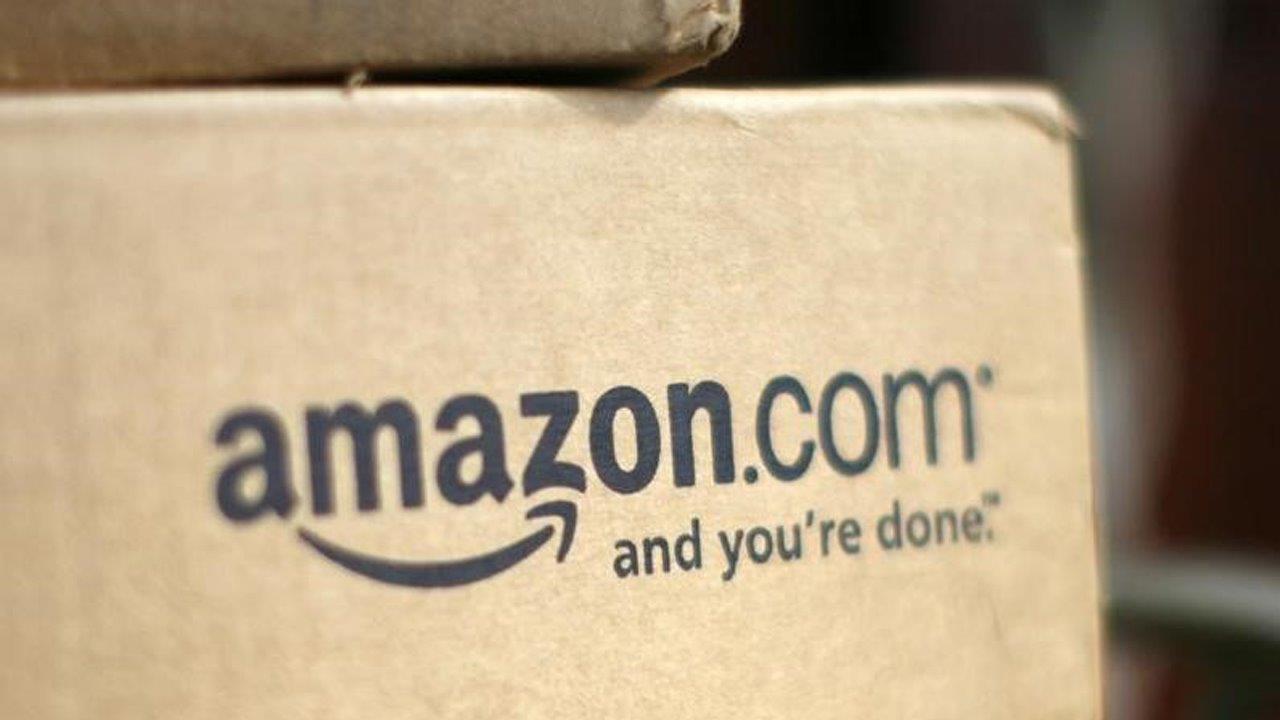Trump’s Tax Revolution: Maria Bartiromo, James Freeman 'The Cost'
Trump slashed the U.S. corporate income tax rate from 35% to 15%
In their new book, “The Cost” FOX Business Network anchor Maria Bartiromo and James Freeman of The Wall Street Journal review President Trump’s first term and highlight many of his policies that drove one of the greatest economic booms in U.S. history, pre-pandemic.
One of his first sweeping overhauls was cutting the U.S. corporate income tax rate from 35% to 15%. What followed is explained in this excerpt from the book.
Chapter 4: Trump’s Tax Revolution
“Is Donald Trump Serious?” asked a New York Times headline on September 29, 2015. The story by columnist Joe Nocera began: “As part of his ongoing effort to make a mockery of the American political process, Donald Trump released his tax plan on Monday morning.” Candidate Trump’s most egregious offense against conventional media wisdom was his proposal to slash the U.S. corporate income tax rate from 35 percent to 15 percent.
The real mockery was the damage the tax had been inflicting on American competitiveness and American workers. When combined with state and local taxes, the total U.S. tax rate on corporate income amounted to nearly 40 percent, the highest in the industrialized world. Also, if an American company brought home the profits made in a foreign market, the Internal Revenue Service taxed those profits, too—even if they had already been taxed by another government overseas. So U.S. companies had an incentive to keep the money offshore instead of investing it in their U.S. factories.
The IRS tax bite on business was so large that numerous U.S. firms were opting for a so-called corporate inversion, merging with a foreign company and locating the new combined business outside the United States. During the final years of the Obama administration, the Treasury Department issued a flurry of notices intended to prevent American companies from fleeing the country—or at least to make it extremely costly and difficult to leave.
TRUMP COULD CUT TAXES BY $1.1T OVER NEXT DECADE IF REELECTED, STUDY SHOWS
After the rookie Republican presidential candidate announced his plan for reform in 2015, Nocera charged that “Trump’s proposed 15 percent corporate tax rate is so low that companies wouldn’t need to leave to enjoy drastically lower taxes.”
IF BIDEN WINS, HE TELLS HIS WALL STREET SUPPORTERS HE CAN’T WAIT TO RAISE TAXES
Imagine that: a policy that doesn’t chase business overseas. Candidate Trump correctly diagnosed that the broken U.S. tax system was chasing wages overseas, too. Trump’s big idea was that a lower tax burden would encourage businesses to invest more in the United States. This business investment would buy more tools and technology for U.S. workers to use on the job and allow them to be more productive. And if workers could get more work done each day, they could demand higher wages. While the media and political establishment reacted in horror to the idea of a lighter business tax burden and treated Trump’s proposal as outrageous, it was hard to argue with him on the merits. Even the economic team at the Obama White House had acknowledged the benefits to workers of a lower corporate tax rate.
Not that Team Obama ever did anything about it, but they did acknowledge the truth in the 2015 Economic Report of the President: “When effective marginal rates are higher, potential projects need to generate more income if the business is to pay the tax and still provide investors with the required return.
Businesses will therefore limit their activities to higher-return projects. Thus, all else equal, a higher effective marginal rate for businesses will tend to reduce the level of investment, and a lower effective marginal rate will tend to encourage additional projects and a larger capital stock. Increases in the capital available for each worker’s use, also referred to as capital deepening, boost productivity, wages, and output.”
In a footnote to that passage Team Obama recognized the work of an economist named Kevin Hassett. Along with his colleague Aparna Mathur, Hassett had been studying the impact of corporate taxation on worker wages for nearly a decade. Hassett and Mathur were trying to figure out who really ends up paying corporate income taxes. They were curious if such taxes are like sales taxes. A lot of economic research has found that consumers carry most of the burden of sales taxes, because when such taxes increase, companies usually don’t cut their prices to offset the tax hike. The consumer gets stuck paying the tab.
In an August 2016 op-ed in the Wall Street Journal, Hassett and Mathur explained their work: “We applied a similar method to study the impact of corporate taxation on the wages of blue-collar workers. If a higher corporate tax reduces the return to capital, then capital may move abroad. This outflow could reduce the productivity and compensation for domestic workers, who are relatively immobile. So just as a sales tax might have an impact on the final goods price, a higher corporate tax might have an impact on wages. If wages go down when corporate taxes go up, the worker is left holding the tax bag.”
And that’s exactly what was happening, especially to workers in the U.S. “Our empirical analysis, which used data we gathered on international tax rates and manufacturing wages in 72 countries over 22 years, confirmed that the corporate tax is for the most part paid by workers,” the economists wrote.
Hassett and Mathur also noted that they weren’t the only ones confirming this phenomenon: “In a 2007 paper, Federal Reserve economist Alison Felix used data from the Luxembourg Income Study, which tracks individual incomes across 30 countries, to show that a 10 percent increase in corporate tax rates reduces wages by about 7 percent.
In a 2009 paper Ms. Felix found similar patterns across the U.S., where states with higher corporate tax rates have significantly lower wages. . . .“. Harvard University economists Mihir Desai, Fritz Foley, and Michigan’s James R. Hines have studied data from American multinational firms, finding that their foreign affiliates tend to pay significantly higher wages in countries with lower corporate tax rates.”
Hassett and Mathur concluded that there was a clear path to higher wages: “One need only cut corporate tax rates. Left and right leaning countries have done this over the past two decades, including Japan, Canada, and Germany. Yet in the U.S. we continue to undermine wage growth with the highest corporate tax rate in the developed world.”
Not for long. Trump was elected that fall on a promise of tax reform and took office on January 20, 2017. The need for reform of the tax code wasn’t recognized just by academic economists but most of all by the executives who had to operate under it.
| Ticker | Security | Last | Change | Change % |
|---|---|---|---|---|
| FDX | FEDEX CORP. | 383.13 | +0.18 | +0.05% |
Four days after Trump’s inauguration, FedEx chief executive officer Fred Smith appeared on Mornings with Maria and explained that a person with a high school education needs “a bulldozer or a tractor or a truck or a plane or something, a piece of capital equipment to allow them to make more money, to have a good income. So our real problem is our tax code is punitive towards capital investment.” Smith added that if “you fix the tax code to incent investment in the United States, you’ll see a lot of these blue-collar jobs that the president talked about so much during the campaign, come back.”
GET FOX BUSINESS ON THE GO BY CLICKING HERE
Trump kept saying the same thing as president, instructing his economic team to draft a plan to slash the corporate income tax rate to the 15 percent he had promised and to provide relief for small-and mid-size firms, not just large corporations. Not that the captain of Trump’s economic team had to be persuaded. The president had selected Kevin Hassett to chair his Council of Economic Advisers. Now Hassett would get to apply his research to solving America’s competitiveness problem.
Maria Bartiromo joined FOX Business Network (FBN) as Global Markets Editor in January 2014. She is the anchor of "Mornings with Maria" on FBN (6-9 AM/ET), which is the number one pre-market business news program in cable, and anchors "Sunday Morning Futures" (10 AM/ET) on FOX News Channel (FNC), which routinely ranks as the highest-rated show on Sundays in cable news. In April 2017, Bartiromo was also named the anchor for FBN’s weekly primetime investing program "Maria Bartiromo’s Wall Street" (Fridays at 9 PM/ET). "The Cost" is her fourth book.
James Freeman is assistant editor of The Wall Street Journal’s editorial page and author of the “Best of the Web” column. He is co-author of "Borrowed Time: Two Centuries of Booms, Busts, and Bailouts at Citi," a New York Times Editors’ Choice and Financial Times Business Book of the Month. He is a Fox News contributor and former investor advocate at the US Securities and Exchange Commission.
This essay is adapted from "THE COST" by Maria Bartiromo and James Freeman. Copyright © 2020 by Bartiromo Productions LLC and James Freeman. Reprinted by permission of Threshold Editions, an imprint of Simon & Schuster, Inc. All rights reserved.






















